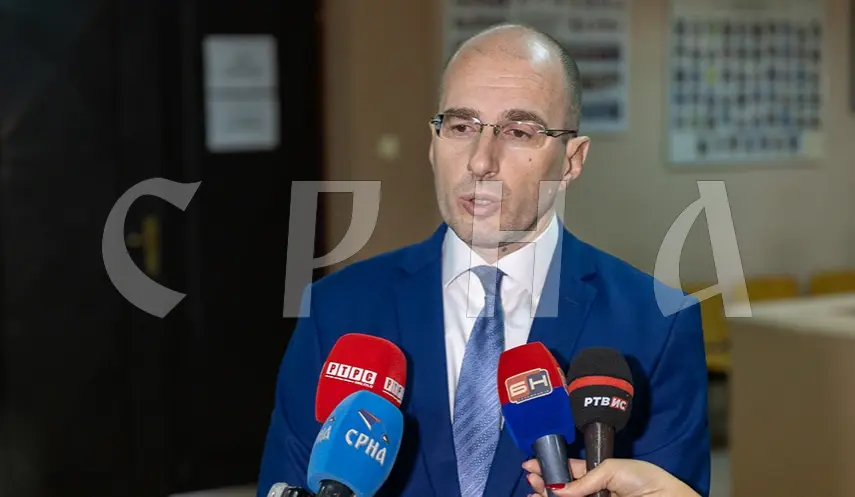MARKOVIĆ: TWO KEY PROBLEMS IN BiH - THE PRESENCE OF THE OHR AND FOREIGN JUDGES
Republika Srpska - Pale - Academic Conference
10/25/2025
12:44

PALE, OCTOBER 25 /SRNA/ - Dean of the Faculty of Law at the University of East Sarajevo Goran Marković, stated that the two key problems in BiH which hinder the development of policies based on compromise and consensus are the presence of the international factor in the form of the Office of the High Representative /OHR/ and the presence of foreign judges in the Constitutional Court of BiH.
Marković said that everything happening in recent months - and indeed over the past several years - is not coincidental.
"It is the result of long-term processes reflected in the selective application of the Dayton Constitution and the difficulties in shaping policies founded on compromise and, to a certain extent, consensus," Marković told reporters in Pale, where a scientific conference was held to mark the Faculty of Law Day.
He explained that from the moment the Dayton Peace Agreement entered into force, there have been constant efforts either to amend it or to completely abandon it.
Marković noted that even 30 years after its adoption, the Dayton Agreement and the Constitution have never been given a genuine opportunity to demonstrate their full potential - both their strengths and weaknesses.
He added that the issues related to the presence of the international factor cannot be resolved overnight, as they are deeply embedded in the legal and political system.
"These problems have existed before and will continue to exist, but in the future there will be proposals on how to gradually overcome these two key obstacles," Marković stated.
He emphasized that the Constitution of BiH also suffers from other contradictions and ambiguities regarding the protection of vital national interests and the equality of the three constituent peoples, noting that all these other issues could be resolved much more easily if the two main problems did not exist.
"In that context, one should also view the recent ruling of the Court of BiH, which we have discussed on several occasions here at the Faculty. It represents a segment of the systemic, constitutional, and political crisis that has followed us for years," Marković concluded.

SERBS IN TEARS AND FEAR OVER OWNERSHIP OF ORTHODOX CEMETERIES AND CHURCHES

CVIJANOVIĆ DEMANDS ACCOUNTABILITY FOR SHAMEFUL CONCERT IN ŠIROKI BRIJEG

OSTOJIĆ URGES BiH AND EU TO ACT OVER GLORIFICATION OF FASCIST IDEOLOGIES





